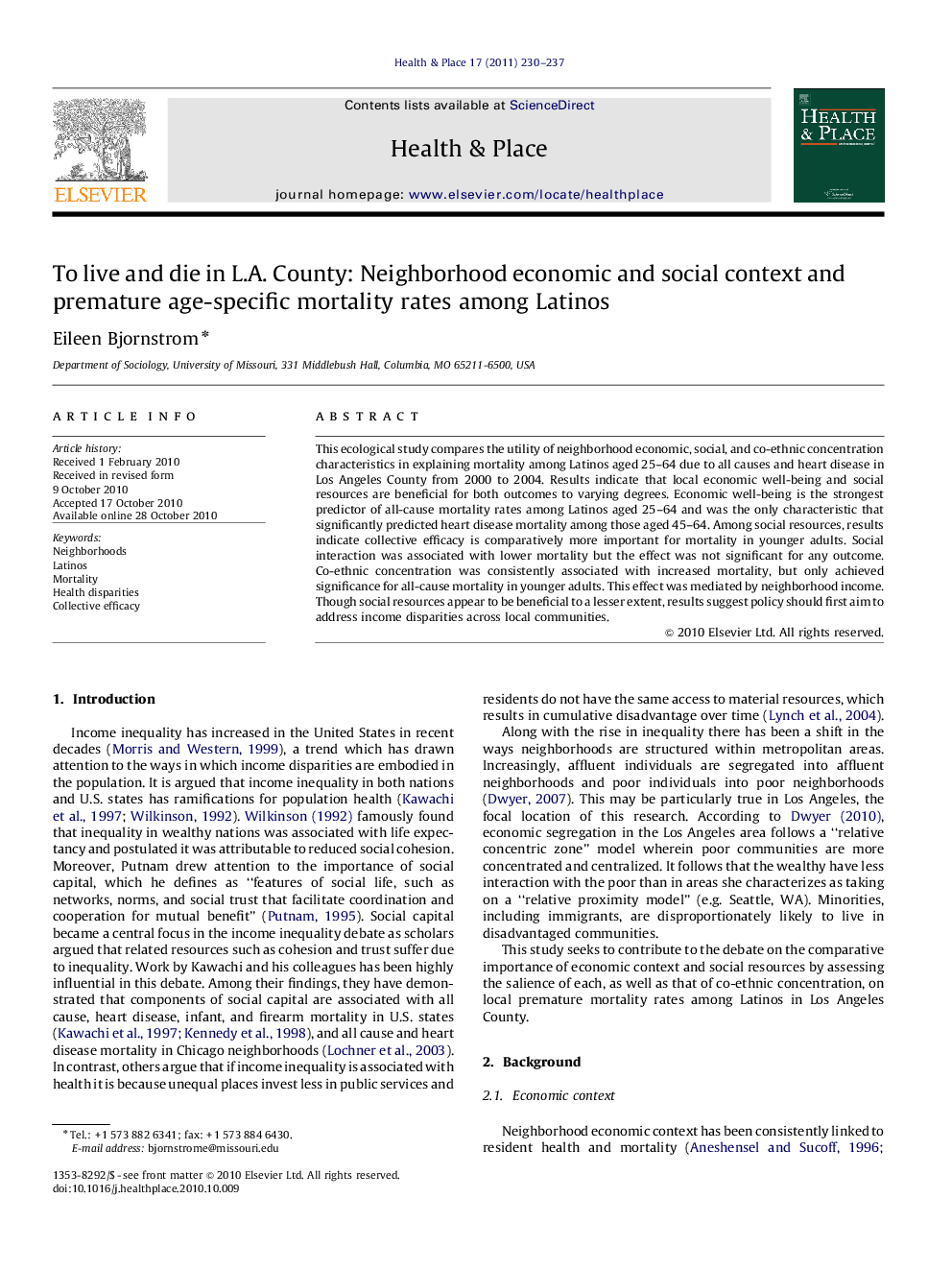| Article ID | Journal | Published Year | Pages | File Type |
|---|---|---|---|---|
| 10502848 | Health & Place | 2011 | 8 Pages |
Abstract
This ecological study compares the utility of neighborhood economic, social, and co-ethnic concentration characteristics in explaining mortality among Latinos aged 25-64 due to all causes and heart disease in Los Angeles County from 2000 to 2004. Results indicate that local economic well-being and social resources are beneficial for both outcomes to varying degrees. Economic well-being is the strongest predictor of all-cause mortality rates among Latinos aged 25-64 and was the only characteristic that significantly predicted heart disease mortality among those aged 45-64. Among social resources, results indicate collective efficacy is comparatively more important for mortality in younger adults. Social interaction was associated with lower mortality but the effect was not significant for any outcome. Co-ethnic concentration was consistently associated with increased mortality, but only achieved significance for all-cause mortality in younger adults. This effect was mediated by neighborhood income. Though social resources appear to be beneficial to a lesser extent, results suggest policy should first aim to address income disparities across local communities.
Related Topics
Health Sciences
Medicine and Dentistry
Public Health and Health Policy
Authors
Eileen Bjornstrom,
